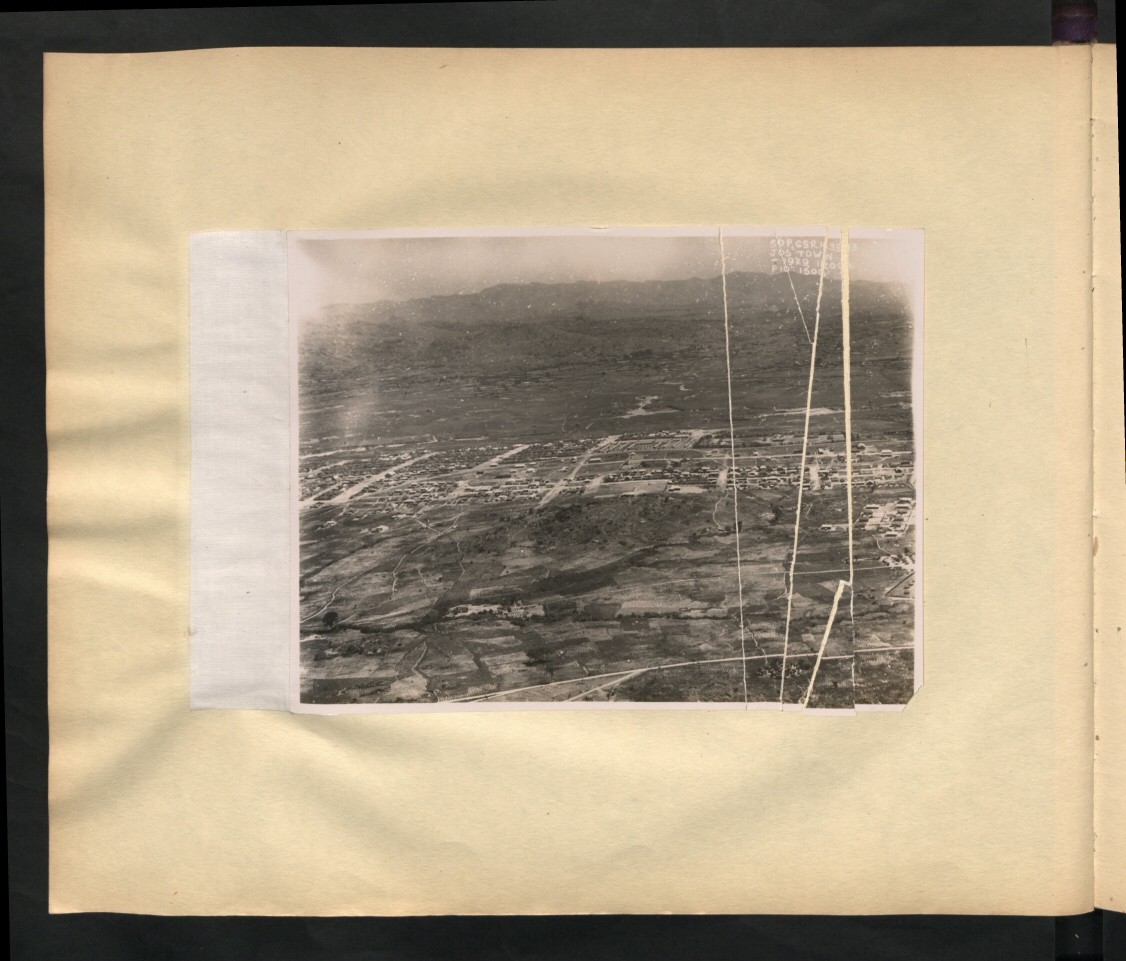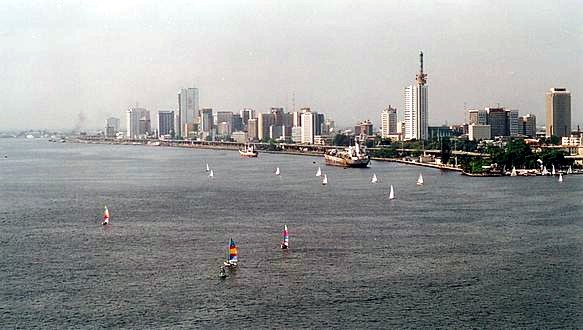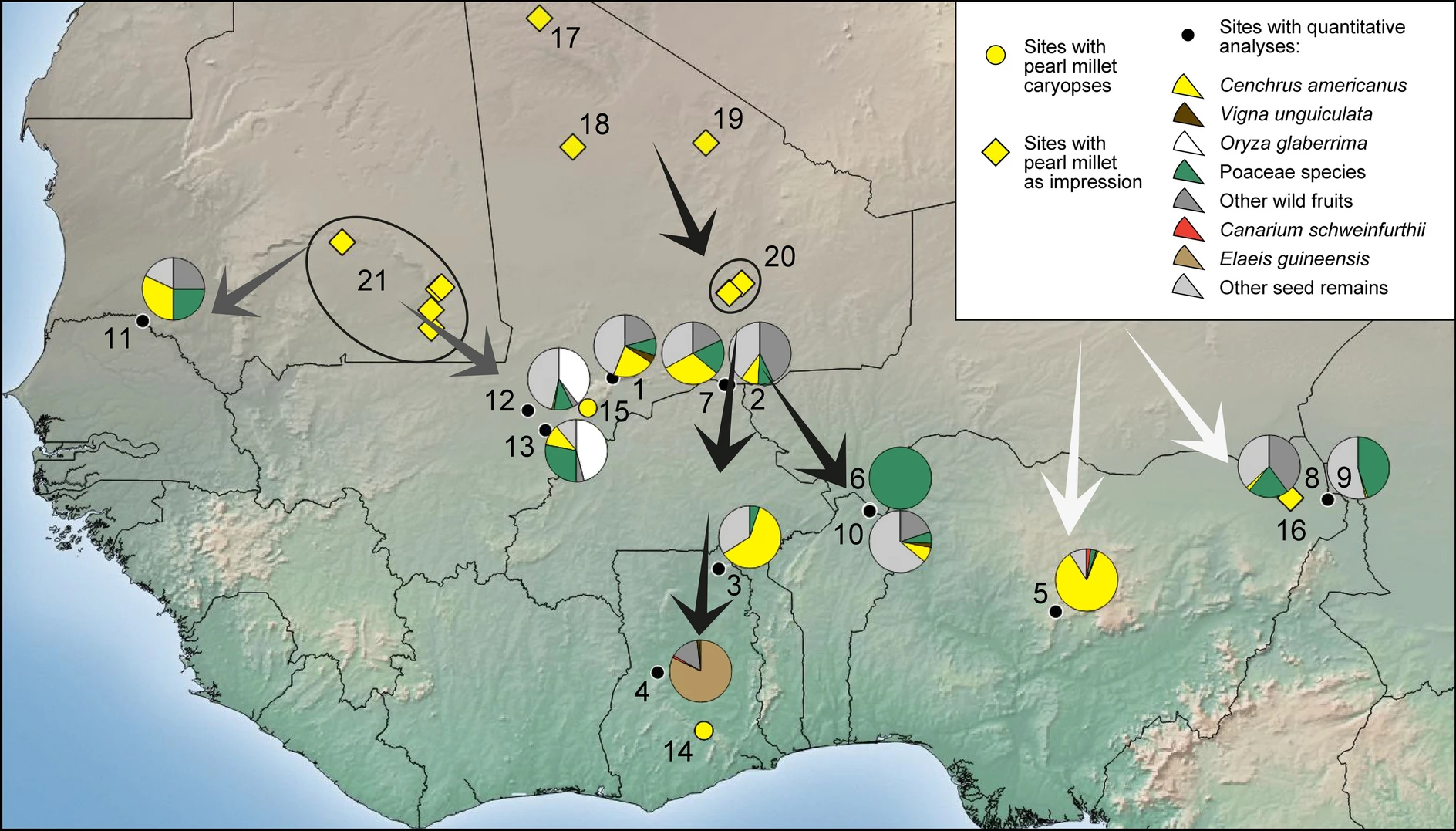|
Jos
Jos is a city in the North-Central region of Nigeria. The city has a population of about 900,000 residents based on the 2006 census. Popularly called "J-Town", it is the administrative capital and largest city of Plateau State. The city is situated on the Jos plateau which lies within the Guinea Savannah of North-Central Nigeria. It connects most of the North-Eastern capitals to the Federal Capital Territory Abuja, by road. Driving in and out of Jos, traffic encounters very steep and windy bends and mountainous sceneries typical of the plateau, from which the state derives its name. During the period of British colonial rule, Jos became an important centre for tin mining after large deposits of cassiterite, the main ore for the metal, were discovered. It is also the trading hub of Plateau State as commercial activities are steadily increasing. History The earliest known settlers of the land that would come to be known as Nigeria were the Nok people ( BC), skilled artisans ... [...More Info...] [...Related Items...] OR: [Wikipedia] [Google] [Baidu] |
Plateau State
Plateau is a northern states of Nigeria, Nigerian state. It is located in the north-central geopolitical zone of Nigeria and includes a range of hills surrounding the Jos Plateau. Plateau State is described as "The Home of Peace and Tourism". The state has a population of around 4.7 million people. Its capital city is Jos. Geography Boundaries Plateau State is located in the north-central zone out of the six geopolitical zones of Nigeria. With an area of , the state has an estimated population of about three million people. It is located between latitude 8°24' N and 10°30' N and longitude 8°32' E and 10°38' E. The state is named after the Jos Plateau, a mountainous area in the north of the state with rock formations. Bare rocks are scattered across the grasslands, which cover the plateau. The altitude ranges from around to a peak of above sea level in the Shere Hills range near Jos. Years of tin and columbite mining have left the area strewn with deep gorges and lakes. A ... [...More Info...] [...Related Items...] OR: [Wikipedia] [Google] [Baidu] |
Berom People
The Berom (sometimes also spelt Birom) are one of the largest autochthonous ethnic groups in Plateau State Nigeria, covering about four local government areas, namely Riyom, Jos North, Jos South and Barkin Ladi (Gwol). Berom people are also found in some Local government areas in southern Kaduna State. Examples include Fadan Karshe, with Berom settlers tracing their origins to Za'ang a Berom district on the Jos Plateau. They emigrated during the British Colonial Government of Nigeria. A large number of this tribe, if not all, are Christians (about 99% of the populace of the Berom people are estimated to be practising Christianity). Statistics also have it that a large number of the population of Plateau State is made up of Berom people. The Berom speak the Berom language, which belongs to the Plateau branch of Benue–Congo, a subfamily of the large Niger–Congo language family. It is not related to the Hausa language (which belongs to the Afro-Asiatic family) or other ... [...More Info...] [...Related Items...] OR: [Wikipedia] [Google] [Baidu] |
Jacob Gyang Buba
Da Jacob Gyang Buba CFR (born October 10, 1951) is a retired Nigeria customs officer and elder statesman. He served as the Comptroller-General of the Nigeria Customs Service from 2004 to 2008. On April 1, 2009, he was sworn in as the ''Gbong Gwom'', the paramount traditional ruler of the Berom Kingdom, becoming the 5th Gbong Gwom after the demise of Da Victor Dung Pam. He is the Chairman, Jos Traditional Council of Chiefs and president of the Plateau State Traditional Council. He currently serves as the 3rd Chancellor of the Nnamdi Azikiwe University since March 2016 at the 10th convocation of the institution. Background Gyang Buba was born on October 10, 1951, in Madu Village of Du District, Jos South, Plateau State. He is the first son of Buba Dung Bot of the Lo Du, Lo-Wet family and Ngo Kaneng Buba, one among the ruling house of the kingdom. He began his early education at SUM elementary school Chwelnyap from 1960 to 1963 then went to Baptist Day School Jos to complete his ... [...More Info...] [...Related Items...] OR: [Wikipedia] [Google] [Baidu] |
List Of Nigerian Cities By Population
The following are lists of the most populous fully defined incorporated settlements in Nigeria by population. This page consists of three different tables, with different kinds of settlements; a list for " defined cities", listing the population, strictly within the defined city limits, a list for "urban area" population, and another list for the population within metropolitan areas. Lists Defined cities/towns Nigerian cities are categorized into three types; there is the "Metropolis", which is characterized by having more than one Local Government Areas (LGAs). These types of cities are usually formed when large municipalities are split into smaller LGAs, to aid efficient administration and management, when small towns grow and merge into existing large cities, or both; some are also formed when urban areas of multiple LGAs merge as a result of growth and are now fully defined as a single settlement, Another type of settlement is the "Municipality", which is basically an LGA th ... [...More Info...] [...Related Items...] OR: [Wikipedia] [Google] [Baidu] |
Nigeria
Nigeria, officially the Federal Republic of Nigeria, is a country in West Africa. It is situated between the Sahel to the north and the Gulf of Guinea in the Atlantic Ocean to the south. It covers an area of . With Demographics of Nigeria, a population of more than 230 million, it is the List of African countries by population, most populous country in Africa, and the List of countries and dependencies by population, world's sixth-most populous country. Nigeria borders Niger in Niger–Nigeria border, the north, Chad in Chad–Nigeria border, the northeast, Cameroon in Cameroon–Nigeria border, the east, and Benin in Benin–Nigeria border, the west. Nigeria is a Federation, federal republic comprising 36 States of Nigeria, states and the Federal Capital Territory, Nigeria, Federal Capital Territory, where its capital, Abuja, is located. The List of Nigerian cities by population, largest city in Nigeria by population is Lagos, one of the largest List of largest cities, metr ... [...More Info...] [...Related Items...] OR: [Wikipedia] [Google] [Baidu] |
Igbo People
The Igbo people ( , ; also spelled Ibo" and historically also ''Iboe'', ''Ebo'', ''Eboe'', / / ''Eboans'', ''Heebo''; natively ) are an ethnic group found in Nigeria, Cameroon, Gabon, and Equatorial Guinea. Their primary origin is found in modern-day Abia State, Abia, Anambra State, Anambra, Ebonyi State, Ebonyi, Enugu State, Enugu, and Imo States, while others can be found in the Niger Delta and along the Cross River. The Igbo people are one of the largest List of ethnic groups of Africa, ethnic groups in Africa. The Igbo language is part of the Niger–Congo languages, Niger-Congo language family. Its regional dialects are mutually intelligible amidst the larger "Igboid languages, Igboid" cluster. The Igbo homeland straddles the lower Niger River, east and south of the Edoid languages, Edoid and Idomoid languages, Idomoid groups, and west of the Lower Cross River languages, Ibibioid (Cross River) cluster. Before the period of Colonial Nigeria, British colonial rul ... [...More Info...] [...Related Items...] OR: [Wikipedia] [Google] [Baidu] |
Nok Culture
The Nok culture is a population whose material remains are named after the Ham people, Ham village of Nok in Southern Kaduna, southern Kaduna State of Nigeria, where their terracotta sculptures were first discovered in 1928. The Nok people and the Gajiganna people may have migrated from the Central Sahara, along with pearl millet and pottery, and diverged prior to arriving in the northern region of modern-day Nigeria. This may have led to their respective settlements in the regions of Gajiganna and Nok. Nok people may have also migrated from the West African Sahel to the region of Nok. Nok culture may have emerged in 1500 BCE and continued to persist until 1 BCE. Nok people may have developed Nok culture#Sculptures, terracotta sculptures, through large-scale economic production, as part of a complex funerary culture that may have included practices such as feasting. The earliest Nok terracotta sculptures may have developed in 900 BCE. Some Nok terracotta sculptures portray figu ... [...More Info...] [...Related Items...] OR: [Wikipedia] [Google] [Baidu] |
Tiv People
Tiv (or Tiiv) are a Bantu ethnic group. They constitute approximately 2.4% of Nigeria's total population, and number over 5 million individuals throughout Nigeria and Cameroon. The Tiv language is spoken by over 5 million people in Nigeria, with a few speakers in Cameroon. Most of the language's Nigerian speakers are found in Benue, Taraba, Nasarawa, Plateau, Cross River, Adamawa, Kaduna, Niger, Kogi and the Federal Capital Territory Abuja. The language is a branch of Benue–Congo and ultimately of the Niger–Congo phylum. In pre-colonial times, the Fulani ethnic group referred to the Tiv as "Munchi" (also sometimes written Munshi e.g. Duggan, E. de C. 1932), a term not accepted by the Tiv people. History The Tiv believe they moved into their present location from the southeast of Africa. It is claimed that the Tiv left their Bantu kin and wandered through southern, south-central and west-central Africa before returning to the savannah lands of West African Sudan vi ... [...More Info...] [...Related Items...] OR: [Wikipedia] [Google] [Baidu] |
British Colonial Period
The British Empire comprised the dominions, Crown colony, colonies, protectorates, League of Nations mandate, mandates, and other Dependent territory, territories ruled or administered by the United Kingdom and its predecessor states. It began with the English overseas possessions, overseas possessions and trading posts established by Kingdom of England, England in the late 16th and early 17th centuries, and colonisation attempts by Kingdom of Scotland, Scotland during the 17th century. At its height in the 19th and early 20th centuries, it became the List of largest empires, largest empire in history and, for a century, was the foremost global power. By 1913, the British Empire held sway over 412 million people, of the world population at the time, and by 1920, it covered , of the Earth's total land area. As a result, Westminster system, its constitutional, Common law, legal, English language, linguistic, and Culture of the United Kingdom, cultural legacy is widespread. ... [...More Info...] [...Related Items...] OR: [Wikipedia] [Google] [Baidu] |
Fula People
The Fula, Fulani, or Fulɓe people are an ethnic group in Sahara, Sahel and West Africa, widely dispersed across the region. Inhabiting many countries, they live mainly in West Africa and northern parts of Central Africa, South Sudan, Darfur, and regions near the Red Sea coast in Sudan. The approximate number of Fula people is unknown, due to clashing definitions regarding Fula ethnicity. Various estimates put the figure between 25 and 40 million people worldwide. A significant proportion of the Fula – a third, or an estimated 7 to 10 million – are pastoralism, pastoralists, and their ethnic group has the largest nomadic pastoral community in the world., Quote: The Fulani form the largest pastoral nomadic group in the world. The Bororo'en are noted for the size of their cattle herds. In addition to fully nomadic groups, however, there are also semisedentary Fulani – Fulbe Laddi – who also farm, although they argue that they do so out of necessity, not choice. The major ... [...More Info...] [...Related Items...] OR: [Wikipedia] [Google] [Baidu] |
Indigenous Peoples
There is no generally accepted definition of Indigenous peoples, although in the 21st century the focus has been on self-identification, cultural difference from other groups in a state, a special relationship with their traditional territory, and an experience of subjugation and discrimination under a dominant cultural model. Estimates of the population of Indigenous peoples range from 250 million to 600 million. There are some 5,000 distinct Indigenous peoples spread across every inhabited climate zone and inhabited continent of the world. Most Indigenous peoples are in a minority in the state or traditional territory they inhabit and have experienced domination by other groups, especially non-Indigenous peoples. Although many Indigenous peoples have experienced colonization by settlers from European nations, Indigenous identity is not determined by Western colonization. The rights of Indigenous peoples are outlined in national legislation, treaties and international law ... [...More Info...] [...Related Items...] OR: [Wikipedia] [Google] [Baidu] |







